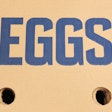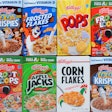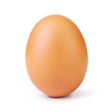The Kellogg Company plans to source only cage-free eggs for its foods and will eliminate gestation stalls from its pork supply chain by the end of 2025, citing that it wants to build on its commitment to animal welfare.
"Even though we are a grains-based company and use very few animal products in our foods, we understand that we have a role to play in influencing responsible behavior throughout our supply chain," said Paul Norman, President, Kellogg North America. "Today's announcement allows us to lead positive change in a way we know gives consumers more of what they want from brands and companies -- a strong focus on social responsibility."
Kellogg uses eggs in some of its foods, including Eggo frozen breakfast foods and MorningStar Farms frozen vegetable foods brands. The company also purchases a very small amount of pork for some of its frozen breakfast sandwiches. Kellogg has already reduced its use of eggs from caged hens in MorningStar Farms products by 20 million eggs since 2007, and by the end of 2016, the company has committed to switch one million more cage-free eggs within its MorningStar Farms brand. Today's announcement, which applies to its U.S. operations, takes those promises one step further with the move to 100 percent cage-free eggs.
"We are proud of the progress we've made to date as we've sourced an increasing number of cage-free eggs," said Diane Holdorf, Chief Sustainability Officer at Kellogg Company. "While we hope these transitions come sooner than 2025, we understand that the development of alternative housing methods takes time and are committed to working with our suppliers to establish the appropriate path forward."















